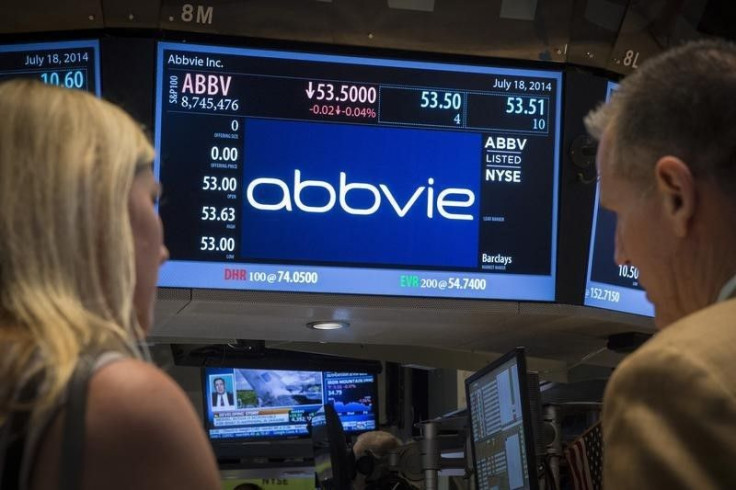AbbVie Scraps Galapagos Deal To Focus On Own Arthritis Drug

(Reuters) - AbbVie Inc
Galapagos shares fell as much as 39 percent to 33.42 euros in Amsterdam on Friday, and were down 18 percent on Nasdaq at mid-afternoon. AbbVie shares fell about 2 percent to $55.37.
If AbbVie's drug ABT-494 succeeds in late-stage studies and is approved, analysts said that would help spare the suburban Chicago company about $1 billion in royalties it would have had to pay Galapagos for its pill, called filgotinib.
Both are members of a new class of medicines that block an inflammation-causing enzyme known as JAK1.
Galapagos said it had no advance clues of AbbVie's decision. Even so, the tiny company said it was already in talks with more than a half dozen other potential partners and would advance filgotinib into late-stage studies.
Tests showed filgotinib to be more effective than AbbVie's drug in targeting enzymes that cause inflammation in rheumatoid arthritis, Galapagos said.
"Galapagos management can negotiate another deal with a key rheumatoid arthritis player and advance filgotinib quickly," Morgan Stanley analyst Matthew Harrison said in a note.
Galapagos said a separate 2-year-old research collaboration with AbbVie to develop treatments for cystic fibrosis is continuing. Results from the first early stage-study in the inherited lung disease are expected next year.
During two mid-stage rheumatoid arthritis studies, patients taking ABT-494 responded to the treatment at week 12, across all dose levels except for the lowest dose in the second study, AbbVie said on Friday.
The trials tested the drug in patients who were not responding adequately to two commonly prescribed arthritis treatments, TNF inhibitors and methotrexate.
"ABT-494 also offers a faster path to Phase 3 development with less uncertainty," company Chief Scientific Officer Michael Severino said in a statement.
Rheumatoid arthritis occurs when the immune system attacks the body's tissues, causing joint pain, swelling and stiffness.
Galapagos, which is also testing filgotinib and another experimental drug for irritable bowel disorders, has been touted as a tempting takeover target for companies such as AbbVie and Johnson & Johnson
Earlier this year, Galapagos said it had terminated an alliance with J&J, begun in 2007, to develop treatments for inflammatory diseases, including GLPG1690 for a dangerous lung-scarring condition called idiopathic pulmonary fibrosis (IPF). It is now preparing to test the drug on its own in mid-stage studies.
(Reporting by Amrutha Penumudi in Bengaluru; additional reporting by Ransdell Pierson in New York; Editing by Anil D'Silva and Richard Chang)
Published by Medicaldaily.com



























